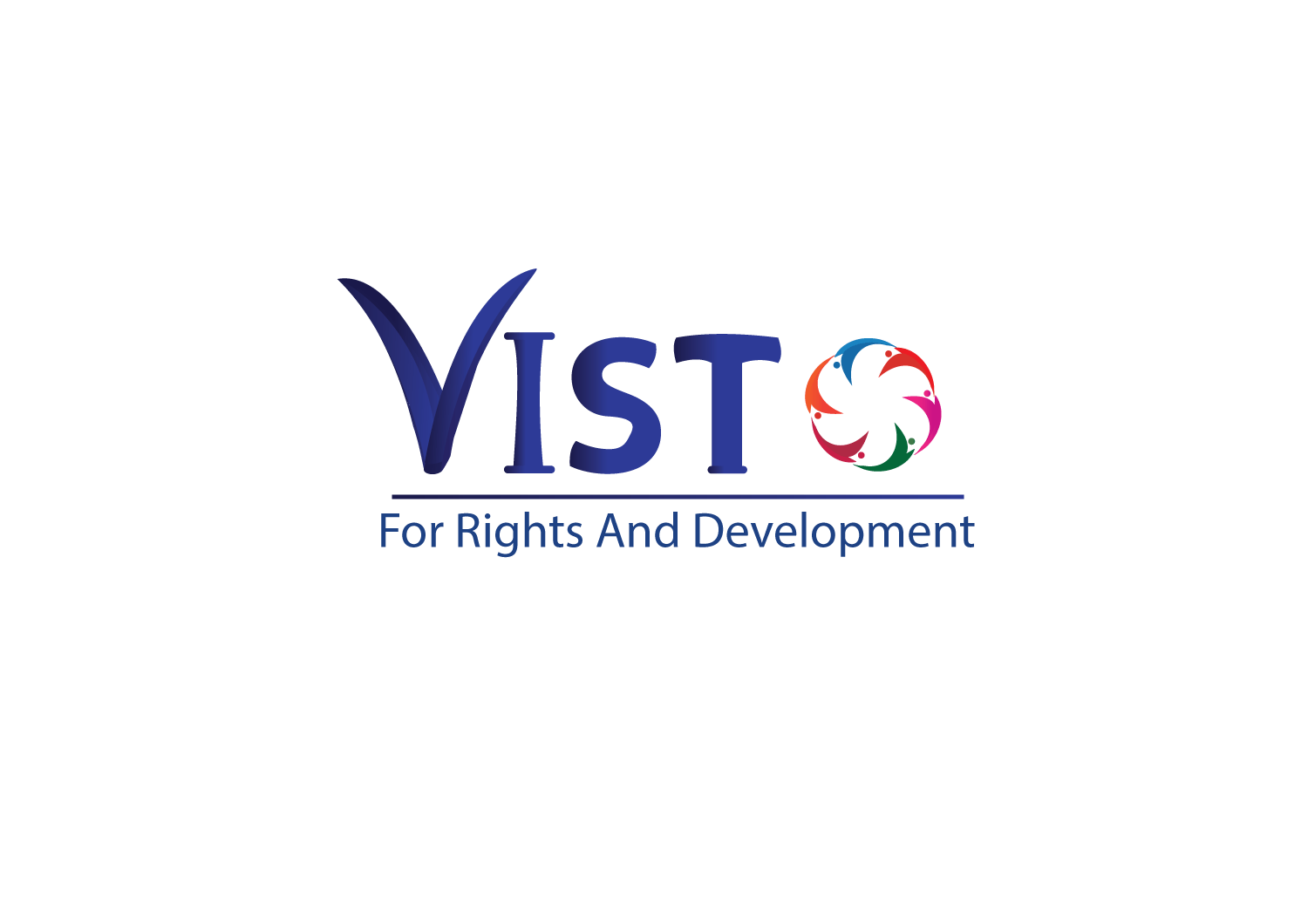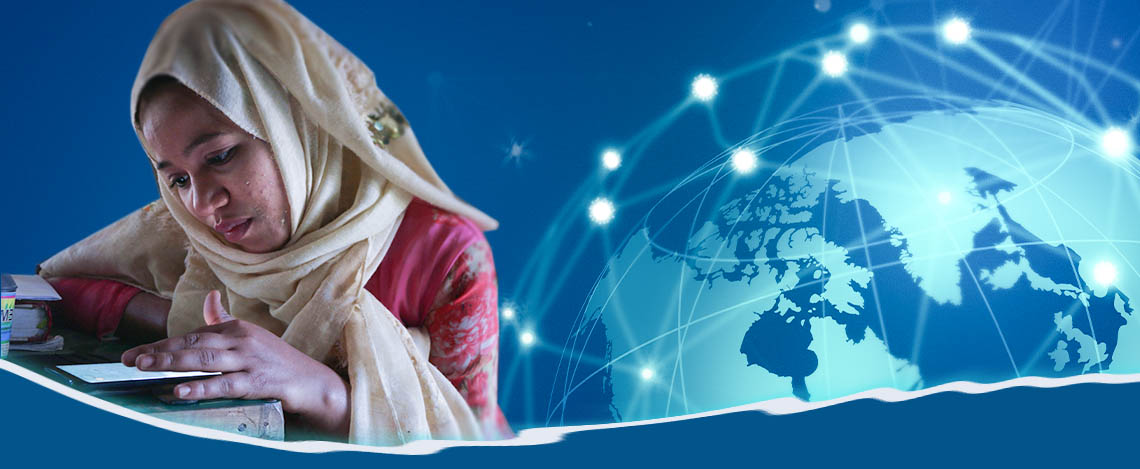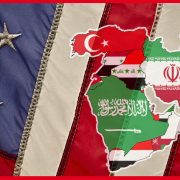Refugees digital rights : the vitality of the right to Internet access during the Covid-19 pandemic
Introduction
Since it started, the Covid-19 pandemic has dramatically transformed almost all our daily lives. The virtual world, as a result, has become our new reality, and face-to-face interactions have almost become a thing of the past. Work, education, commercial activity and even information relating to the pandemic have all become accessible via the Internet. As the number of cases worldwide tops 7 million – breaking another record, questions are being raised about the impact of this exceptional crisis on the human rights situation, including the right to Internet access.
This crisis has demonstrated that ensuring access to the Internet has never been more vital and necessary than it is now. It is no longer a luxury, and governments are now seen as under the obligations to bridge the digital divide for vulnerable groups deprived of Internet access. Not only are governments now urged to make Internet access available, but also to make it so at affordable prices. For refugee communities in particular, their existing problems are now compounded and exacerbated by the current crisis, making them one of the most affected groups at all levels, especially the health and education sectors.
Hence, this article discusses the extent to which refugees’ digital rights have been impacted by the ongoing Covid-19 crisis. It also addresses the significance of the right to Internet access at reasonable prices, particularly for educational and employment purposes.
Access to the Internet and digital rights as a human right
The fundamental human rights related to the Internet include the right to privacy, freedom of expression, access to information, the right to education and other rights relating to the protection of cultural and linguistic diversity and the rights of minorities.[1] The presence and evolution of the Internet has led to the emergence of new human rights, represented in the right to Internet access.[2]
No legal text contained in international instruments, such as the 1951 United Nations Refugee Convention, states explicitly that access to the Internet is a human right. However, this cannot mean that Internet access does not constitute a right, nor does it mean that refugees can be excluded or exempted from enjoying this right.
In its recommendations as part of the 32nd session of the UN Human Rights Council (UNHRC) on the promotion, protection and enjoyment of human rights on the Internet, the United Nations General Assembly (UNGA) emphasised the universality of the Internet as an open space to achieve sustainable development. The UNGA also stressed the importance of facilitating access to the Internet as a tool to help advance education. It further recommended that a human rights-based approach be followed to providing access to the Internet, also stressing the need to bridge the digital divide.
A report by the UN Special Rapporteur on freedom of opinion and expression stressed that access to the Internet has two main dimensions, the first is ‘access the content’ without any restrictions except within the limits permitted by international human rights law, and the second is to provide the infrastructure, information as well as communication technology that allow access to the Internet in the first place.
It appears that there is a growing international recognition that access to the Internet is a human right, and that denial of access to the Internet is a violation of human rights
A joint declaration emphasised that, “States are under a positive obligation to facilitate universal access to the Internet, as access to the Internet has become imperative to promote respect for other rights such as the right to education, work, health care and the right to assemble. The declaration was made by the United Nations (UN) Special Rapporteur on Freedom of Opinion and Expression, the Organization for Security and Co-operation in Europe (OSCE) Representative on Freedom of the Media, the Organization of American States (OAS) Special Rapporteur on Freedom of Expression and the African Commission on Human and Peoples’ Rights (ACHPR) Special Rapporteur on Freedom of Expression and Access to Information.
Thus, it appears that there is a growing international recognition that access to the Internet is a human right, and that denial of access to the Internet is a violation of human rights. It can also be said that the measures taken and declarations made so far as well as the debate over the extent to which Internet constitutes a human right are all signs for the adoption of a new international agreement on digital and Internet rights.
The right to Internet access is also directly related to what is known as digital rights and freedoms. These are simply human rights recognised and acknowledged under international law (such as the right to expression, and the right to education), albeit provided via an Internet Ecosystem. Internet access and connection is the backbone and main guarantor of the exercise of these digital rights.
Although there is no legal framework for digital rights, their roots can be found in the International Bill of Human Rights, especially the Universal Declaration of Human Rights and the International Covenant on Civil and Political Rights, as emphasised by the Special Rapporteur on the promotion and protection of the right to freedom of opinion and expression. UNESCO has adopted four principles on which the Internet is based, which it called the “R-O-A-M Principles for Internet Universality.” ROAM stands for:
- Rights, which include the right to expression and to privacy as well as economic and social rights;
- Openness;
- Accessibility, which includes connection to, use of, and equal access to the Internet at affordable prices; and
- Multi-stakeholder participation in decision-making.
The vitality of digital rights for refugees
According to statistics by the UNHCR, about 29 million refugees and asylum seekers are scattered around the world during this time, and the exceptional situation of these refugees is of particular importance. These refugees have escaped persecution in their country of origin in search of security. Having escaped, they are now facing consequent separation, possibly for decades, from their family and relatives. Not only this, the process for reuniting separated families is also complicated.[3]
What these circumstances create are rights exclusively tied to refugees, including their right to connect to the outside world and to access information. In light of the rapid technological developments in particular, access to the Internet has become the last resort for refugees to stay connected and access information, gain education and find work.
Despite the developments in the communications and information technology and the digital revolution that the world has witnessed, refugees are still lagging behind and are hardly benefiting from these developments.[4] According to the Office of the United Nations High Commissioner for Refugees, the likelihood of refugees getting phones able to connect to the Internet is 50% less than the rest of the population. Also, 20% of refugees residing in rural areas do not have a permanent means of communication, while refugees in urban areas cannot afford to connect to the Internet despite it being available.
This problem regarding the lack of refugees’ access to the Internet has prompted the United Nations High Commissioner for Refugees (UNHCR) to launch a global initiative – called Connectivity for Refugees. The goal of the campaign, according to UNHCR, is to “to ensure that all refugees, and the communities that host them, have access to available, affordable and usable mobile and Internet connectivity in order to leverage these technologies for protection, communications, education, health, self-reliance, community empowerment”.
The impact of Covid-19 on refugee rights: the vitality of Internet access
While access to the Internet has been essential for refugees’ ability to work, learn and express their opinions, its importance has increased dramatically in light of the Covid-19 pandemic and the restrictions imposed on freedom of movement, work and education. The impact of the crisis on refugees can be seen across these areas:
- Refugees’ right to education
The pandemic has forced individuals to quarantine, which prompted individuals and governments to move into virtual life, effectively shifting their daily activities, including work, meetings and education, to the Internet space. Schooling has also shifted into distance learning. Hence, access to the Internet has become indispensable, especially for distance education. This raises a question about the situation of refugee students. That is, they cannot access the Internet due to: 1) the lack of access to the technology needed to access the Internet, 2) the lack of appropriate computer or mobile devices that connect them to the Internet and 3) the high service fee rates for Internet access. This question highlights the significance of refugees’ right to connect to the Internet to adapt to the new reality forced on them by the pandemic.
The UNHCR has indicated that one of the most significant challenges facing refugee students in light of the pandemic is limited access to hardware devices, and the high cost of Internet connectivity. In this regard, the Special Rapporteur on the promotion and protection of freedom of opinion and expression stressed that the Internet is an “important educational tool” and added that “universal access to the Internet should be a priority for all.”
- Refugees’ right to assembly and access to services
The Covid-19 pandemic has forced most organisations and refugee service providers to close their offices and switch to using online communication channels to communicate with refugees. In Egypt, for example, most organisations tended to conduct interviews with refugees via Zoom. Awareness raising sessions have also been held across various areas via online video and audio conferencing platforms and applications. Refugees’ ability to communicate in these contexts hinges on them having the equipment and technology needed for such platforms and apps. In addition, refugees need to have access to a high-quality Internet connection, which is not available to all refugees and highlights the problem of the digital divide between refugee communities and others.
The pandemic also affected refugees’ access to support and financial assistance, as their presence in financial aid centres was no longer possible. This has prompted many organisations to transfer financial aid via bank accounts, which are not always available to refugees. Mobile payment applications (Mobile Cash & mobile money wallet) have also been another method, but they require beneficiaries to be able to access the Internet.
Obstacles to refugees’ access to the Internet and digital rights
A number of obstacles contribute to denying refugees their right to access the Internet, including:
- Financial constraints: refugees’ limited financial capacity is one of the most important obstacles that prevent them from connecting to the Internet, mainly because they cannot afford to buy the appropriate computers or smartphones that enable them to connect to the Internet and access the various video and audio communication apps. This problem is also compounded by the ongoing pandemic, which caused many refugees to lose their jobs, most of which are in the informal market.
- Technical constraints: these are mainly caused by the lack of suitable infrastructure or lack of Internet connectivity, especially when talking about refugees in camps scattered in Africa and some Arab countries, such as Jordan and Lebanon. These areas already suffer from poor infrastructure, including the lack of telephone networks or cables that allow access to the Internet in places where refugees reside, more so where no appropriate camps house and accommodate refugees.
- Legal Constraints: these stem mainly from the lack of official recognition of refugee documents as personal IDs to register them for Internet services or to sell them SIM cards under their names.[5] Because most service providers ask for passports rather than refugees cards granted by UNHCR, refugees are also unable to access portable financial portfolios, cash payment and other various mobile financial services and smartphone applications.[6]
Conclusion
By now, it should be clear how necessary and vital for refugees to have digital rights and be able to access the Internet, including by having the necessary infrastructure to access services in general, and in light of the pandemic in particular. The poor policies adopted in host countries in regards to digital rights also do not account for the new reality created by the spread of the pandemic, mainly as a result of social distancing regulations. All of these impediments have placed refugees in a position of complete isolation from the outside world.
Therefore, the Office of the United Nations High Commissioner for Refugees, in partnership with the governments of countries hosting refugees, should work to allocate SIM cards for refugees issued based on their refugee cards without the need for passports. The UNHCR is also urged to help create the necessary infrastructure in refugee camps while providing students access to the Internet and to study material. In addition, the necessary measures need to be taken so that students can attend exams, while social distancing restrictions are maintained. A special centre equipped with computers and mobile devices should also be set up to help connect refugees to the Internet.
Key words: refugees, Covid-19, digital rights, Internet access
[1]. Kurbalija, Jovan (2016). An Introduction to Internet Governance, (Malta: Diplo Foundation, 7th edition, 2016) p. 207.
[3] For more information on the topic of refugee reunification, see: Farhat, Mohamed (2018). “The right to family reunification in the light of international law and national practices: Syrian refugees.” Political Trends Magazine, Fourth Issue, May 2018: 108-120. (Available in Arabic).
[4] United Nations High Commissioner for Refugees (UNHCR), Connecting
Refugees. (Geneva: UNHCR, June 2016).
[5]. United Nations High Commissioner for Refugees (UNHCR), Risk Communication and Community Engagement – COVID-19, Guidance Note – Connectivity for Refugees COVID-19, Geneva (March) 2020.
[6]. United Nations High Commissioner for Refugees (UNHCR), Displaced & Disconnected.
Visto International bears no responsibility for the content of the articles published on its website. The views and opinions expressed in these articles are those of the authors and do not necessarily reflect the official policy or position of the Organisation. All writers are encouraged to freely and openly exchange their views and enrich existing debates based on mutual respect.








